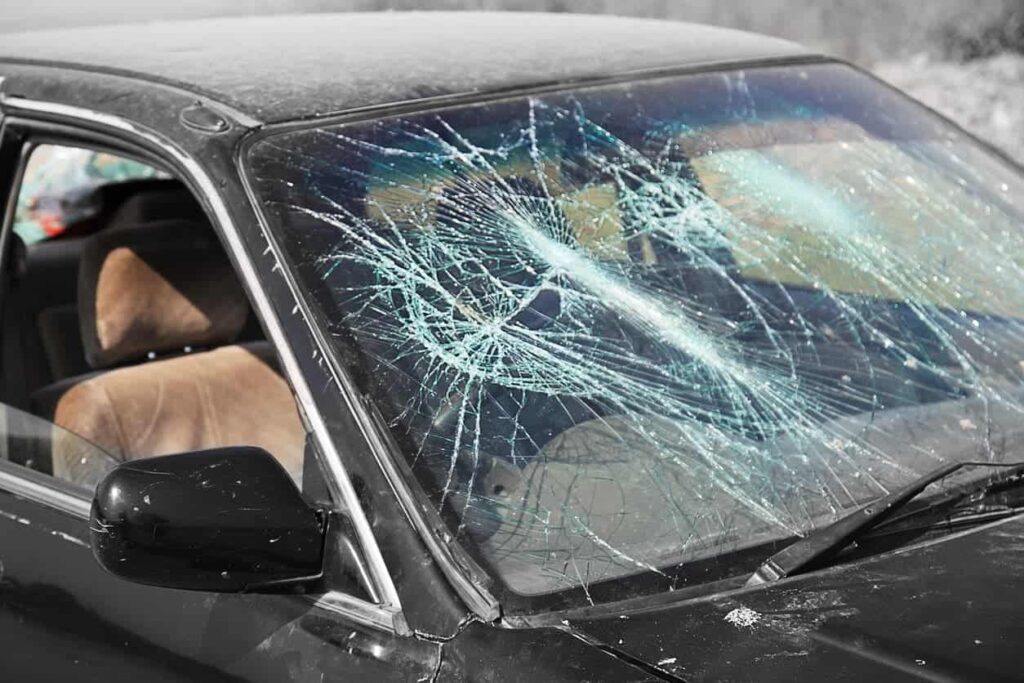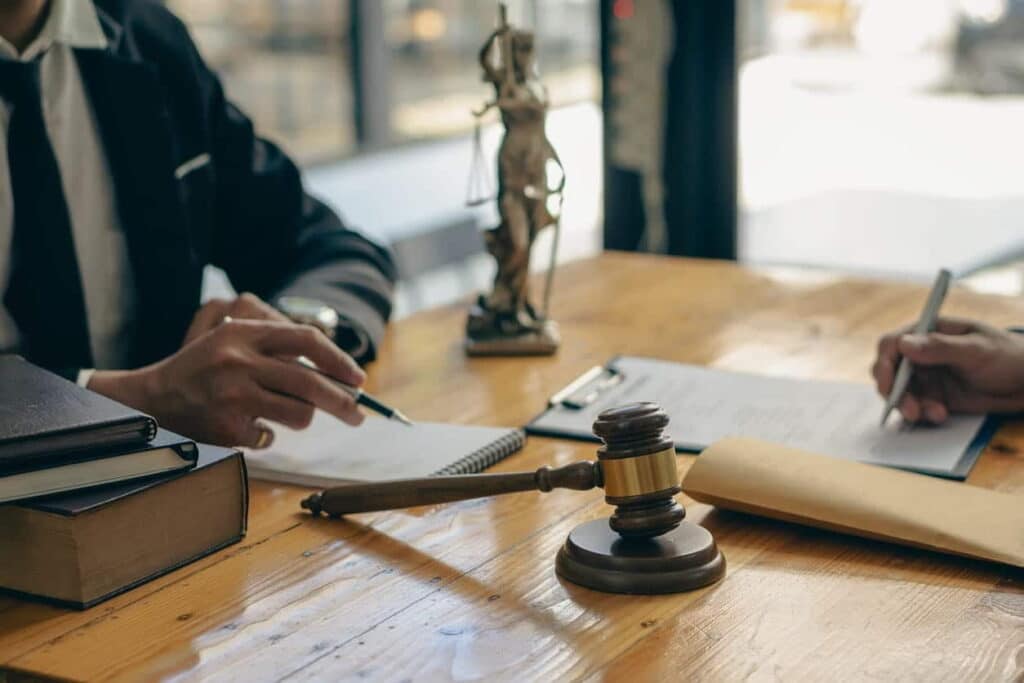If you’ve been injured in a Florida car accident, knowing your rights and options is critical to recovering compensation for your injuries and financial losses. Missing any insurance and personal injury claim deadlines could mean losing out on compensation.
At Jack Bernstein, Injury Attorneys, our experienced car accident lawyers can help you understand the complexities of filing a claim, negotiate with insurance companies, and represent you if your case goes to trial.
Florida’s PIP 14-day rule
All Florida drivers are required to carry personal injury protection (PIP) insurance. Minimum coverage amounts include $10,000 of bodily injury coverage per person, with no more than $20,000 paid per accident, and $10,000 of property damage coverage per accident.
In Florida, you have 14 days from the date of the accident to seek medical care for your injuries. While many injuries are evident after a car accident, some injuries may not present themselves until hours or even days afterward. The adrenaline rush, shock, or trauma of the accident can cause a delay in experiencing pain from your injuries. Additionally, if you have internal injuries or a head injury like a concussion, symptoms might not always immediately present themselves.
For this reason, it’s essential to be assessed by a medical professional at the scene or immediately after your car accident. The quicker you seek medical attention, the stronger your injury claim will be.
Personal injury cases can be complex and lengthy
Personal injury cases are complex and take time to resolve. The sooner you start this process, the sooner you can receive compensation for your injuries and losses.
Determining liability
One of the main factors that affects the length of your personal injury case is determining liability. This process can be especially complicated if there are multiple parties involved or if there are other parties that can be held liable.
If you’ve been involved in an accident with a commercial vehicle, the company, the maintenance party servicing the vehicle, or the training company that employed the driver could all be held liable. In some cases, township and community boards could also be held liable if their actions led to conditions that caused the accident.
The more complex your case, the more exhaustive the process of determining liability might be.
Gathering evidence
Gathering evidence is another time-consuming aspect. Evidence comes in many forms, and an experienced car accident attorney will help conduct an exhaustive investigation aimed at collecting pertinent evidence:
- Surveillance footage of the accident
- Witness statements
- Results from law enforcement experts who specialize in investigating car accident scenes
- Maintenance and safety records for commercial vehicles
- Local and state law violations
What if you don’t claim your injury right after the accident?
The longer you wait to bring forward a claim, the harder it becomes to prove your case.
Florida has a clear statute of limitations — the time period a claimant has to bring forward their case. This time limit encourages victims to file a claim as quickly as possible. It provides a level of protection for defendants so that they don’t face an unexpected lawsuit years after the accident has occurred.
Car accident victims in Florida have two years to bring forward a lawsuit. This time frame can be tolled or paused if the defendant has fled the scene, is unable to be located, or is otherwise unavailable.
What if the defendant is a government agency?
If a government agency was the source of your injury, the statute of limitation extends to three years. You might also be limited in the amount of damages you can recover from a government defendant.
How does fault impact your injury claim?
Florida is one of 12 states that adhere to no-fault auto laws. Under these laws, it does not matter who is at fault for the car accident. All Florida drivers are required to carry PIP insurance, which kicks in to cover medical costs and other financial losses. Car accident victims can always seek additional compensation through a personal injury lawsuit. Whether or not you’re at fault does not keep you from fighting for damages you may be entitled to.
Potential damages in a Florida auto accident case
Car accident victims in Florida can seek economic and non-economic damages following a car accident. In some cases, punitive damages may also be sought.
Unlike other states, Florida does not impose caps on compensatory damages such as economic and non-economic damages; however, Florida does impose a cap on punitive damages. This cap is described as “three times the amount of compensatory damages awarded to each claimant entitled thereto, consistent with the remaining provisions of this section; or the sum of $500,000.”
Economic damages
Economic damages cover the tangible and calculable losses suffered after an accident, including the following:
- Medical bills, treatment costs, and hospital bills
- Loss of income and lost wages
- Future earnings capacity
- Property damage
Non-economic damages
Non-economic damages refer to intangible losses, including, but not limited to:
- Emotional trauma
- Pain and suffering
- Scarring and disfigurement
- Loss of enjoyment of life
What if I am partially at fault?
Florida adheres to pure comparative negligence, meaning a party is allowed to recover damages even if they are 99% at fault. However, the recovery is reduced by their degree of liability. Damages will be awarded proportionately to both parties based on each party’s degree of responsibility.
What to do after a car accident
It’s important to act quickly after a car accident in Florida. Follow these steps to ensure you are able to build the strongest case possible.
Seek medical attention
In major car accidents, police officers and EMTs will be dispatched to the scene. It’s important to let these medical professionals examine you and determine the extent of your injuries.
You may need to be transported to a local hospital, but you can also seek medical attention from your own primary care provider. Seeking medical attention immediately after your accident allows you to establish that your injuries were the result of the accident.
Document the scene
When law enforcement is dispatched to a car accident scene, they will take a police report which will include a detailed account of the accident, the parties involved, injuries sustained, and other important information. You can obtain a copy of this report for your claim.
Other ways to document the scene include:
- Witness statements
- Taking photographs of the accident
- Taking photographs of your injuries
- Capturing images of evidence like skid marks, signage, and other indicators that can help establish fault
- Documenting your medical treatments and care
Notify your insurer
You must notify your PIP insurer in a timely manner. Not doing so could keep you from recovering compensation. Additionally, never sign anything offered by your insurer until you have an experienced car accident lawyer review it first.
Speak with a car accident lawyer
Obtaining legal representation from an experienced car accident lawyer ensures that your interests are protected. Jack Bernstein, Injury Attorneys can help you understand your rights and options. Our attorneys will negotiate on your behalf, work with all parties involved, and represent you to the fullest extent of the law.
How can a car accident lawyer help me?
An experienced car accident attorney has a detailed understanding of Florida auto insurance laws. If your case goes to trial, an experienced lawyer will have an intimate knowledge of the court system and how to navigate it. The team at Jack Bernstein, Injury Attorneys has years of experience navigating Florida insurance laws and can represent you when dealing with all involved parties.
Sources:
House Bill 837. (2023).
FLA. STAT. § 627.7407. (2023).
Pure Comparative Negligence. (2022).



